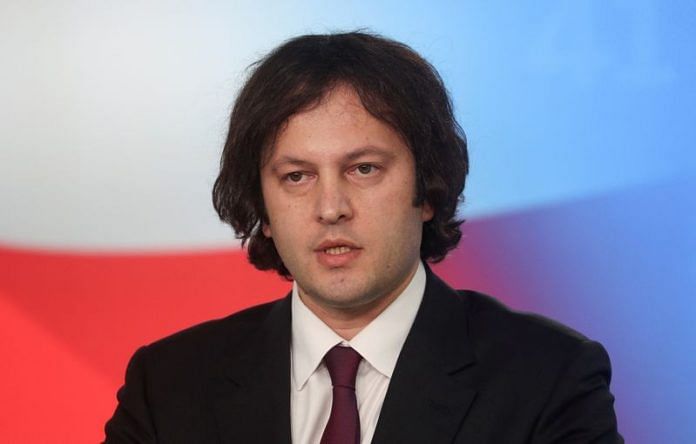By Felix Light
TBILISI (Reuters) -Georgia’s ruling party said on Thursday that the country would suspend talks on European Union accession until 2028, while also refusing budgetary grants from Brussels, effectively halting its application to join the bloc.
In a statement, the Georgian Dream governing bloc accused the EU of “a cascade of insults”, using the prospect of accession talks to “blackmail” the country, and to “organise a revolution in the country”.
As a result, it said: “We have decided not to put the issue of opening negotiations with the European Union on the agenda until the end of 2028. Also, we refuse any budgetary grant from the European Union until the end of 2028.”
The South Caucasus country of 3.7 million has the aim of EU accession written into its constitution and has traditionally been among the most pro-Western of the Soviet Union’s successor states.
Georgia’s relations with Brussels have deteriorated sharply in recent months. The EU has already said that Georgia’s application is frozen.
There was no immediate comment from the EU on Georgian Dream’s statement.
Opinion polls show that around 80% of Georgians support EU membership, and the bloc’s flag flies alongside the national flag outside virtually all government buildings in the country.
Georgia’s pro-Western opposition reacted to Georgian Dream’s announcement with fury and called for immediate street protests.
Giorgi Vashadze, a prominent opposition leader, wrote on Facebook: “the self-proclaimed, illegitimate government has already legally signed the betrayal of Georgia and the Georgian people.”
Georgian Dream says it still wants to join the EU eventually, but has repeatedly engaged in diplomatic feuds with Brussels in recent years, even as it has deepened ties with neighbouring Russia.
Earlier on Thursday, Georgian Prime Minister Irakli Kobakhidze told journalists that EU membership might harm Georgia’s economy, as it would require Tbilisi to cancel visa-free agreements and trade deals with other countries.
Foreign and domestic critics of Georgian Dream say the party, which is seen as dominated by its billionaire founder, ex-prime minister Bidzina Ivanishvili, is steering Georgia back towards Moscow, from which it gained independence in 1991.
Opinion polls show most Georgians dislike Russia, which continues to back two breakaway Georgian regions and defeated Tbilisi in a five-day war in 2008.
The EU gave Georgia candidate status in December 2023, but has said that a raft of laws passed by Georgian Dream since, including curbs on “foreign agents” and LGBT rights, are authoritarian, Russian-inspired, and obstacles to EU membership.
Western countries have also said that an October election, in which official results gave the Georgian Dream bloc almost 54% of the vote, was marred by violations. Opposition parties said the poll was fraudulent, and refused to take their seats.
The European Parliament passed a resolution on Thursday calling for the elections to be annulled and re-run, and for sanctions to be imposed on key Georgian Dream figures.
Georgian Dream said on Wednesday it had chosen Mikheil Kavelashvili, a former deputy with a long record of anti-Western statements, as its candidate for Georgia’s mostly ceremonial presidency.
Kavelashvili is set to replace the pro-EU incumbent, Salome Zourabichvili, who has repeatedly accused Georgian Dream of deliberately derailing Georgia’s EU hopes.
Russian President Vladimir Putin, speaking on Thursday on a visit to Kazakhstan, praised the “courage and character” he said Georgian authorities had shown in passing the law on foreign agents, which domestic critics have likened to Russian legislation.
(Reporting by Felix LightEditing by Mark Trevelyan, Andrew Osborn, Frances Kerry, William Maclean)
Disclaimer: This report is auto generated from the Reuters news service. ThePrint holds no responsibilty for its content.




